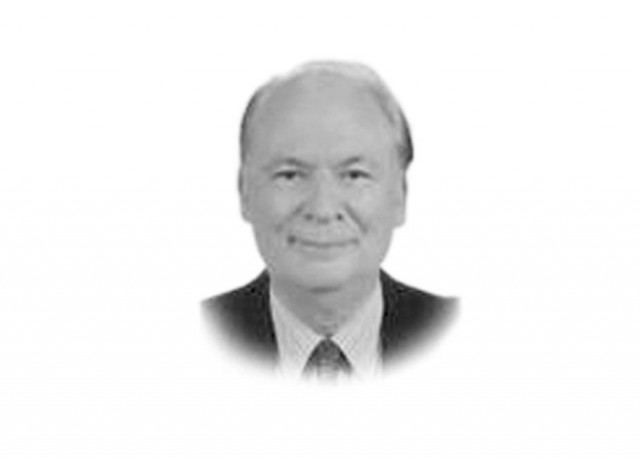Tribute to an editor long forgotten
Unfortunately, they don’t make people like Dawn's once editor, Altaf Hussain, anymore.

We had no television or computers in those days, just typewriters. This meant one had to first scribble a draft before assaulting one’s Remington or Olivetti . I used to contribute two columns a week and the occasional editorial. We briefed the editor on the important news that had come down the pike. One day it was my turn. ‘Sir’, I said with the anxiety of a matador who was about to enter the corrida, ‘The emperor Haile Selassie is on a visit to Brazil and his cousin has staged a coup.’
The answers and questions came in staccato fashion. ‘Make it a first leader/ Are we for or against?/What does the Times of India say?/ They are for the coup and against the emperor./ Then we are for the emperor and against the coup.’ I had taken the precaution of typing two editorials, one in which I hauled the cousin over the coals and another in which all my Bolshi rage welled up against imperialism. I handed one to the linotype operator and made paper airplanes with the other.
One morning while reading about a politician who had been duped into cross-gartered conviviality, I heard that the Intercontinental Hotel was being constructed on the Polo Ground. I was appalled. All that I had learned in boarding school, about fair play, fighting for the underdog and not hitting a man when he is down flashed before my eyes. ‘What will happen to those poor lads who play cricket every Sunday, those poor wretches who have nowhere else to go? , I simply had to do a column.
The epistle appeared on a Monday and all hell broke loose. I received a call from one of the senior assistant editors who in turn had received a call from a member of the Haroon family. Didn’t I know that the publisher of Dawn was one of the investors in the Intercontinental project? The caller had adopted the tone of the commandant at Belsen who sat outside the gas chamber. Well, as it happened, I didn’t know and said so in so many words. The commandant then informed me in the same sinister tone that I should have my letter of resignation ready when he came to the office. I decided to stand firm and wait for the editor who was soon due to arrive from Washington.
A week later the editor’s peon struck an attitude and leaning against the door said through red teeth that I was being summoned by the chief. Clutching my resignation letter I entered the hallowed premises. A stern editor glared at me for two minutes. Asked me to sit down and ordered tea. How long had I had worked for his paper he wanted to know. “What, six months? And you and your wife still haven’t taken the trouble of calling on me and my wife? Did you know she is a big fan of your writing?” It will go to Mr Altaf Hussain’s eternal credit that he never once mentioned the controversial article or the phone call or the Intercontinental Hotel.
Unfortunately, they don’t make people like that anymore.
Published in The Express Tribune, April 3rd, 2012.















COMMENTS
Comments are moderated and generally will be posted if they are on-topic and not abusive.
For more information, please see our Comments FAQ